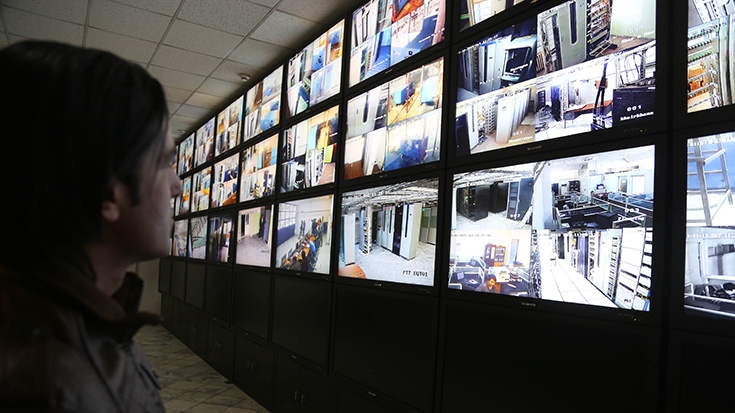Initiative gives start-ups a lifeline
The program, ‘Ibtikaar: Nurturing technology start-up companies’, started in July 2014. It is managed by MCIT with support provided by the World Bank. Mateen, who is Ibtikaar’s Operations Manager, says that so far about $1.5 million have gone towards the implementation of the program.
“We have provided work opportunities for start-up technology companies that show promise and have something to offer,” Mateen says. “We give them practical opportunities to put their plans into practice.”
The program now works with eight different companies, operating across health, education, computer games and administrative projects. These companies partner with Ibtikaar for six to nine months, during which the entrepreneurs undergo intensive training to learn the skills to realize their visions and plans.
Reza is grateful for the program on several levels. “Without Ibtikaar, I wouldn’t have this job,” he laughs. He believes that the program has opened a career path for him and his classmates that they otherwise may never have had access to.
“Afghanistan doesn’t have any other opportunities to learn robotics,” he explains. “If this project didn’t exist, my friends and I would have to choose something outside of this profession—that is, of course, if we were lucky enough to find something else at all.”
While Reza and his colleagues have only been working on the project for a few months, he nonetheless stresses that they have worked hard and are close to realizing their project. They are nearing the practical stage of constructing the actual robot. The robot’s construction will take eight months to complete, at a total cost of $80,000.
Next phase of ICT development
In recent years, technology and telecommunications programs—specifically education and training of Afghan citizens—have been priorities for the Government and its development partners.
In April 2011, the World Bank financed MCIT’s Information and Communication Technologies (ICT) Sector Development Project, of which Ibtikaar is a sub-component. The project builds on the success of earlier activates and catalyzes the next phase of ICT development in the country, focusing on new opportunities such as Internet development and seeking to ride the smart phone revolution. It helps mainstream the use of mobile applications to improve public service delivery and program management in strategic sectors in the government.
The Project has also included capacity for government officials as a key objective. Officials and civil servants from across the Government have been trained on a range of topics including mobile governance, development of regulatory frameworks in the Internet age, and on improving the enabling environment for IT industry development. Over 150 Government officials at various levels have benefited from this training.
The project also helps develop the local IT industry by expanding the pool of skilled and qualified IT professionals, and supporting the incubation of ICT companies in Afghanistan. Currently, about 1,500 Afghan citizens have received training, both in Afghanistan and overseas with support from this project.
The Project will now begin next phase of ICT skills development, with a focus on addressing the specific needs of the private sector and close existing skills gaps. “The objective is to train young people and especially women and position them for high-wage employment in ICT-based companies in Afghanistan,” says His Excellency Aimal Marjan, Deputy Minister-IT of MCIT. “These young and talented Afghans will be the new face of the country to the world.”

